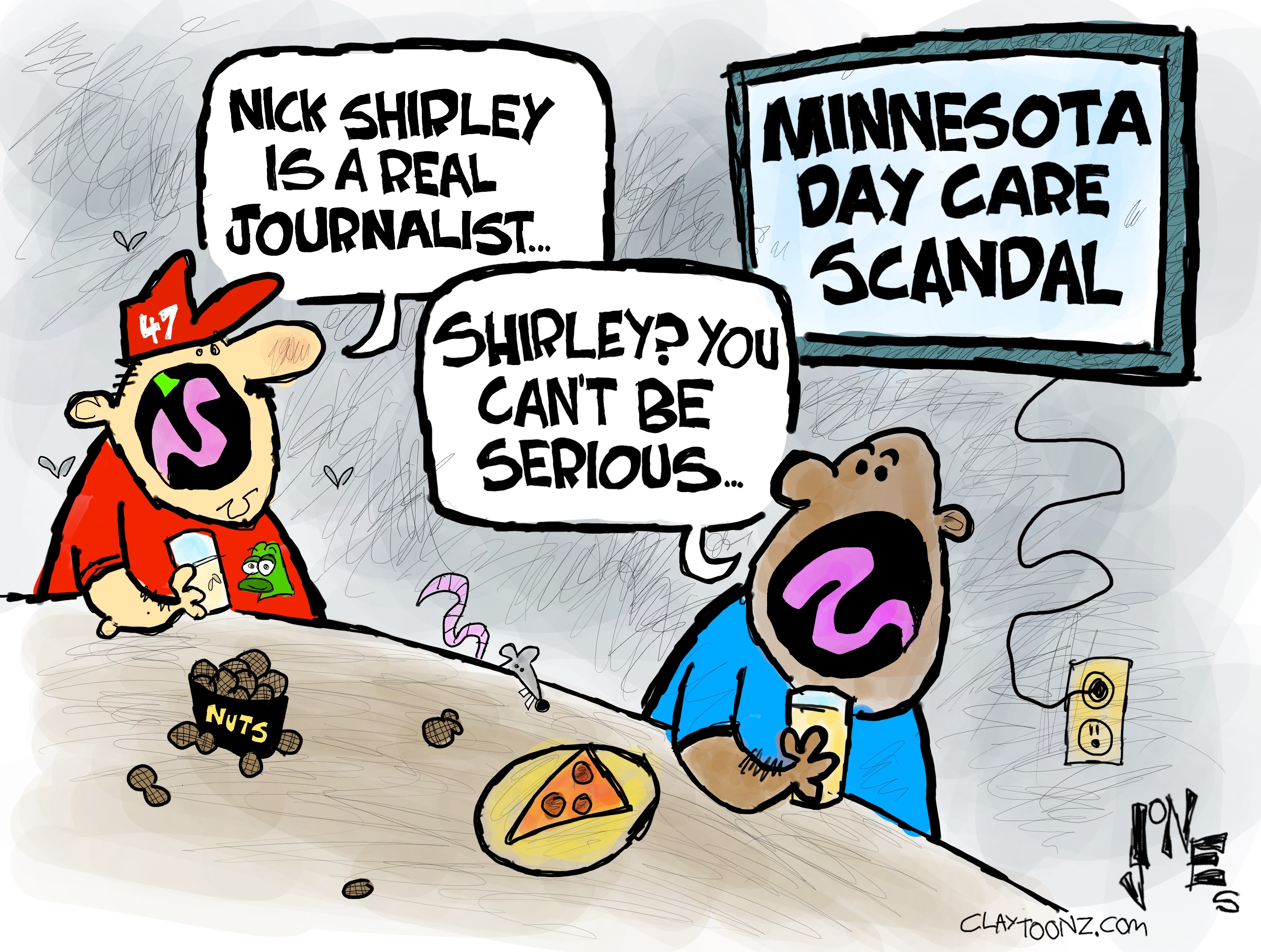The grandstanding theatricality of the Kavanaugh hearings
The first day of the Senate Judiciary Committee's hearings on Brett Kavanaugh's nomination to the Supreme Court went exactly as one would expect ...


The first day of the Senate Judiciary Committee's hearings on Brett Kavanaugh's nomination to the Supreme Court went exactly as one would expect. It was a circus.
But from liberal protesters caterwauling to Sen. Dick Durbin (D-Ill.) urging Kavanaugh to suspend his own hearing, from Republicans complaining of "mob rule" to Sen. Ben Sasse (R-Neb.) schoolmarming everyone, one has to wonder: Was the chaos merely political theater?
There's plenty of evidence that it was, starting with a call that Chuck Schumer, the Senate minority leader, allegedly placed to Democratic members of the committee over the weekend, encouraging them to join together in a mutual (but most likely futile) effort at obstruction.
The Week
Escape your echo chamber. Get the facts behind the news, plus analysis from multiple perspectives.

Sign up for The Week's Free Newsletters
From our morning news briefing to a weekly Good News Newsletter, get the best of The Week delivered directly to your inbox.
From our morning news briefing to a weekly Good News Newsletter, get the best of The Week delivered directly to your inbox.
But to ask the question about theater is to miss the point. All politics has an element of theater, and the political context of this nomination, along with its enormously high stakes, have ensured from the beginning that we were going to see fireworks at these hearings. That they exploded at the moment the meeting convened should have surprised no one.
There is, to begin with, the broadest context — the fact that justices who are confirmed receive lifetime appointments to a court that readily engages in intrepid acts of overturning its own precedents and democratically enacted laws. That raises the stakes for every appointment to absurdly high levels.
Then there's the uncertainty about how many justices any president will get to appoint, which is partly a function of dumb luck — Ronald Reagan and George H. W. Bush got to place a combined six justices on the court in their 12 years in the White House, whereas Bill Clinton and George W. Bush named just two justices each during their successive eight-year terms — and partly a result of the majority party's willingness to break longstanding norms of institutional decorum to gain an advantage. That's what happened when Barrack Obama's third nominee to the high court (Merrick Garland) was denied a hearing and a vote, for no good reason at all, by the Republican majority during Obama's final year in office.
Add in the intense ideological polarization that marks all political acts in our moment and has helped to produce a Supreme Court that's sharply divided along partisan lines, and the fact that the consistently conservative Kavanaugh would be succeeding a justice (the just-retired Anthony Kennedy) who often sided with the court's liberal faction on abortion and gay rights, and we're left with a perfect setup for a memorable display of rhetorical fire, brimstone, and performance art. Which is exactly what we got on Tuesday.
A free daily email with the biggest news stories of the day – and the best features from TheWeek.com
Remember, too, that Kavanaugh was nominated by a president under special counsel investigation, and the Supreme Court may end up having to weigh in on any number of issues surrounding that probe. Can a president be compelled to testify? Can he be indicted while in office? And how about after he leaves office, for crimes allegedly committed during his time as president?
These and many other questions could ultimately be decided by the court on which Kavanaugh has been nominated to serve. That’s why the top rating he received from the American Bar Association matters much less than his considered views of executive power, privilege, and immunity.
The answers to those questions may be well found in the roughly 42,000 pages of documents (covering Kavanaugh's time working in the White House Counsel's office under President George W. Bush) that Judiciary Committee chairman Chuck Grassley released to Democrats just hours before the hearings convened. (Or maybe they're found in the tens of thousands of pages of additional documents that the Trump administration has thus far prevented the Democrats from reviewing.) Given that those 42,000 pages were made available only at the last minute, it's all but impossible to say. Republicans clearly want the Kavanaugh nomination to advance before the contents of those documents can be read, digested, and (potentially) used to help persuade wavering members of the majority to take a stand against the possibility that Trump ends up appointing a justice who casts the deciding vote to protect him from prosecution.
In a word, the nomination of Brett Kavanaugh is a thoroughgoing mess — a microcosm of all that's poisonous about our politics. No wonder the first day of hearings generated an abundance of scalding heat and hardly a trace of light.
Damon Linker is a senior correspondent at TheWeek.com. He is also a former contributing editor at The New Republic and the author of The Theocons and The Religious Test.
-
 Political cartoons for January 4
Political cartoons for January 4Cartoons Sunday's political cartoons include a resolution to learn a new language, and new names in Hades and on battleships
-
 The ultimate films of 2025 by genre
The ultimate films of 2025 by genreThe Week Recommends From comedies to thrillers, documentaries to animations, 2025 featured some unforgettable film moments
-
 Political cartoons for January 3
Political cartoons for January 3Cartoons Saturday's political cartoons include citizen journalists, self-reflective AI, and Donald Trump's transparency
-
 Bari Weiss’ ‘60 Minutes’ scandal is about more than one report
Bari Weiss’ ‘60 Minutes’ scandal is about more than one reportIN THE SPOTLIGHT By blocking an approved segment on a controversial prison holding US deportees in El Salvador, the editor-in-chief of CBS News has become the main story
-
 Has Zohran Mamdani shown the Democrats how to win again?
Has Zohran Mamdani shown the Democrats how to win again?Today’s Big Question New York City mayoral election touted as victory for left-wing populists but moderate centrist wins elsewhere present more complex path for Democratic Party
-
 Millions turn out for anti-Trump ‘No Kings’ rallies
Millions turn out for anti-Trump ‘No Kings’ ralliesSpeed Read An estimated 7 million people participated, 2 million more than at the first ‘No Kings’ protest in June
-
 Ghislaine Maxwell: angling for a Trump pardon
Ghislaine Maxwell: angling for a Trump pardonTalking Point Convicted sex trafficker's testimony could shed new light on president's links to Jeffrey Epstein
-
 The last words and final moments of 40 presidents
The last words and final moments of 40 presidentsThe Explainer Some are eloquent quotes worthy of the holders of the highest office in the nation, and others... aren't
-
 The JFK files: the truth at last?
The JFK files: the truth at last?In The Spotlight More than 64,000 previously classified documents relating the 1963 assassination of John F. Kennedy have been released by the Trump administration
-
 'Seriously, not literally': how should the world take Donald Trump?
'Seriously, not literally': how should the world take Donald Trump?Today's big question White House rhetoric and reality look likely to become increasingly blurred
-
 Will Trump's 'madman' strategy pay off?
Will Trump's 'madman' strategy pay off?Today's Big Question Incoming US president likes to seem unpredictable but, this time round, world leaders could be wise to his playbook
